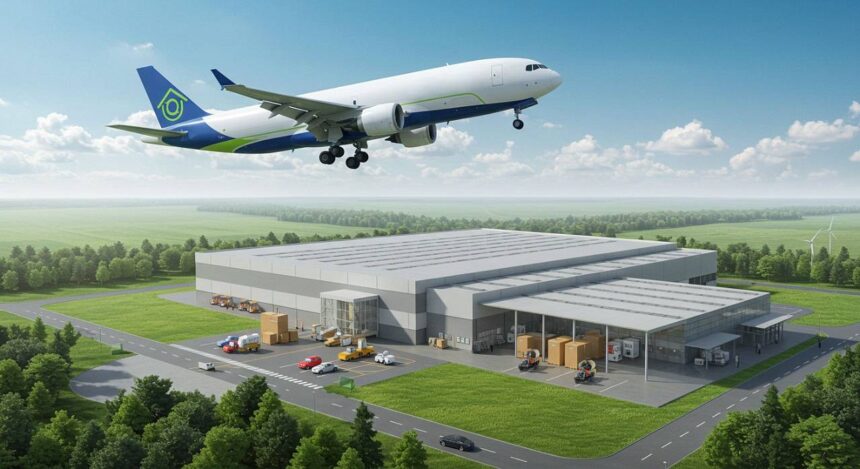The smart home industry is built on innovation, efficiency, and sustainability. Consumers are increasingly demanding energy-efficient devices, automation that reduces waste, and products that align with a greener future. However, one critical aspect of the supply chain — transportation — has often been overlooked in discussions about sustainability. Air freight has traditionally been considered one of the least eco-friendly logistics options, but advances in technology and logistics strategies are transforming it into a more sustainable choice.
For companies in the smart home sector, using eco-friendly air freight solutions is not just about reducing environmental impact—it’s also about enhancing efficiency, minimizing delays, and ensuring that innovative products reach consumers in the fastest, most responsible way possible.
Reducing Carbon Footprint with Smarter Logistics
Historically, air freight has been associated with high fuel consumption and carbon emissions. However, the industry is undergoing a green transformation, driven by advances in fuel efficiency, aircraft technology, and optimized logistics planning.
1. Fuel-Efficient Aircraft and Sustainable Aviation Fuels (SAF)
Modern cargo aircraft are now designed to be far more fuel-efficient than their predecessors, consuming less fuel per ton of cargo transported. Additionally, the introduction of Sustainable Aviation Fuels (SAF)—derived from renewable sources such as plant-based oils, algae, and waste materials—is significantly reducing the carbon footprint of air cargo operations. These eco-friendly fuels emit up to 80% less CO₂ than traditional jet fuels, making air freight a more sustainable option for companies in the smart home sector.
2. Optimized Cargo Charter Routes for Lower Emissions
One of the key ways cargo charters are reducing their environmental impact is by optimizing flight routes and reducing unnecessary fuel consumption. Advanced AI-driven logistics planning ensures that cargo flights take the most efficient routes, avoiding congested airspace and reducing total flight time. This not only cuts emissions but also lowers operational costs, making eco-friendly air freight a financially sound choice for smart home businesses.
3. Carbon Offsetting and Emission Reduction Programs
Many air freight providers are implementing carbon offsetting programs, investing in renewable energy projects, reforestation initiatives, and carbon capture technologies to neutralize the emissions from cargo flights. By partnering with eco-conscious logistics providers, smart home companies can ensure their supply chain aligns with their sustainability goals.
Sustainable Packaging and Waste Reduction in Air Freight
Beyond fuel and emissions, the environmental impact of air freight also extends to packaging waste. Many companies are now switching to biodegradable, lightweight, and recyclable packaging materials, which not only reduce waste but also help lower transportation costs by minimizing cargo weight.
Additionally, smart loading techniques ensure that cargo space is maximized, reducing the number of flights needed and lowering overall emissions per shipment. This is particularly beneficial for the smart home industry, where products like sensors, automation hubs, and IoT devices are often compact and can be efficiently consolidated.
Balancing Speed, Sustainability, and Cost
For smart home companies, fast delivery is essential, especially when launching new products or responding to demand spikes. While air freight has traditionally been seen as an expensive and environmentally costly option, modern innovations are making it a viable and sustainable logistics solution.
By choosing cargo charter services that prioritize fuel efficiency, optimized logistics, and carbon reduction programs, smart home brands can achieve a balance between sustainability, speed, and cost-efficiency. This ensures that eco-conscious consumers receive their smart home devices without unnecessary delays or environmental harm.
Conclusion
The shift toward eco-friendly air freight solutions is revolutionizing the way smart home products are transported worldwide. By leveraging sustainable aviation fuels, optimized logistics, and innovative packaging strategies, companies can significantly reduce their carbon footprint while maintaining supply chain efficiency.
As the demand for smart home technology grows, so does the need for sustainable logistics solutions. Cargo charters provide the perfect balance of speed, reliability, and environmental responsibility, ensuring that the smart home industry can continue to innovate without compromising the planet.
Learn more about sustainable air freight charter services here: https://aircgc.com/services/cargo_charters/.
